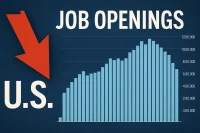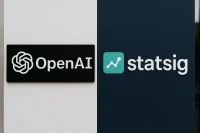The Unprecedented Rise of Career Disillusionment
Career disillusionment has reached unprecedented levels in today’s workforce, creating a crisis that extends far beyond typical job market fluctuations. This growing sense of disenfranchisement stems from fundamental changes in how corporations operate, particularly since the seismic shifts that began in 2020. What was once a manageable aspect of professional life has evolved into an existential crisis affecting millions of workers worldwide.
The traditional career trajectory that previous generations enjoyed—working for decades at a single company with job security and upward mobility—has been completely dismantled. According to recent studies, job satisfaction has reached historic lows, with modern workers facing a reality where long-term employment is virtually non-existent, replaced by short-term contracts, constant layoffs, and an increasingly transactional relationship between employers and employees.
The Corporate Transformation That Changed Everything
The corporate world has undergone a dramatic transformation that has fundamentally altered the employer-employee relationship. Companies have become increasingly short-sighted, focusing solely on the next earnings report rather than long-term stability. This shift has created an environment where employees are viewed as expendable resources rather than valuable assets.
The pandemic served as a catalyst for this transformation, accelerating trends that were already beginning to emerge. What followed was a series of devastating blows to worker confidence: mass layoffs, hiring freezes, rescinded job offers, and an overall sense that no job is truly secure. The psychological impact of these changes has been profound, leading to widespread career disillusionment among professionals at all levels.
The Broken Hiring Process and Its Psychological Toll
The modern hiring process has become a source of immense frustration and career disillusionment for job seekers. What was once a straightforward process has evolved into an elaborate gauntlet of multiple interview rounds, technical assessments, and personality tests—often ending in ghosting or rejection without explanation. For those struggling with job interview anxiety, this broken system only compounds the stress and uncertainty.
Job seekers are asked to jump through increasingly complex hoops, investing significant time and energy in applications that may never result in employment. The process has become so demanding that many professionals find themselves questioning whether the effort is worth the potential reward. This constant rejection and uncertainty contributes significantly to the growing sense of career disillusionment that permeates the workforce.
The AI Revolution and Its Threat to Job Security
Artificial intelligence represents perhaps the most significant threat to job security in modern history, further fueling career disillusionment among workers. While AI promises to create new opportunities, the reality is that many traditional roles are being automated or augmented in ways that reduce the need for human workers.
The pace of AI integration has been staggering, with companies rushing to implement these technologies across every aspect of their operations. Research from Goldman Sachs indicates that AI could affect up to 300 million jobs globally, leaving many workers feeling uncertain about their future relevance in an increasingly automated world.
Worried About AI and Job Security?
Employers still need human talent. Post your jobs on WhatJobs today and connect with candidates ready to adapt in the AI era.
👉 Post a Job Now →The Short-Cycle Employment Crisis
One of the most damaging aspects of the modern job market is the short-cycle nature of employment. Workers can no longer expect to build long-term careers with single employers. Instead, they face a reality where job hopping has become not just common but necessary for career advancement.
This constant movement creates a vicious cycle where workers are penalized for the very behavior that companies have forced upon them. Employers criticize candidates for “job hopping” while simultaneously creating conditions that make long-term employment impossible. The irony is not lost on workers who find themselves caught in this impossible situation.
The Path Forward: Reclaiming Control in Your Career
Despite the overwhelming challenges that contribute to career disillusionment, there are strategies that workers can employ to regain control over their professional lives. The key is to stop relying on traditional employment models and instead focus on building skills and relationships that make you indispensable to employers.
This approach requires a fundamental shift in mindset from being an employee to being a strategic partner. Workers must focus on developing skills that are difficult to automate, building strong professional networks, and creating multiple income streams that provide security beyond traditional employment. For those looking to advance their careers, this strategic approach offers a path forward despite the challenges.
The Future of Work: A World of Haves and Have-Nots
The trajectory of career disillusionment suggests that we are heading toward a future where the workforce will be divided into two distinct groups: those who have successfully adapted to the new reality and those who have been left behind. This division will likely become more pronounced as AI continues to advance and traditional employment models continue to erode.
For those who are able to adapt, the future holds opportunities for greater autonomy, flexibility, and potentially higher compensation. However, for those who cannot or will not adapt, the future looks increasingly bleak. Understanding salary negotiation strategies becomes crucial in this challenging environment.
Frequently Asked Questions
What is career disillusionment and why is it becoming more common?
Career disillusionment refers to the growing sense of disenfranchisement and loss of hope that many workers feel about their professional prospects. It’s becoming more common due to factors like corporate layoffs, AI disruption, broken hiring processes, and the erosion of long-term employment opportunities that previous generations enjoyed.
How has the pandemic contributed to career disillusionment?
The pandemic accelerated existing trends toward short-term employment, mass layoffs, and increased corporate focus on short-term profits over long-term stability. This created a perfect storm of uncertainty that has left many workers feeling disillusioned about their career prospects and the stability of traditional employment.
What role does AI play in career disillusionment?
AI represents a significant threat to job security as companies rush to automate and augment traditional roles. The rapid pace of AI integration has left many workers uncertain about their future relevance, contributing to widespread career disillusionment as they wonder whether their skills will remain valuable in an automated economy.
How can workers overcome career disillusionment and regain control?
Workers can overcome career disillusionment by focusing on building skills that are difficult to automate, developing strong professional networks, creating multiple income streams, and positioning themselves as strategic partners rather than traditional employees. The key is to stop relying on traditional employment models and instead focus on creating unique value that makes you indispensable.
Live Example: Sarah’s Journey Through Career Disillusionment
Sarah, a marketing professional with 8 years of experience, found herself caught in the cycle of career disillusionment after being laid off from her third job in two years. Each time she thought she had found stability, another round of layoffs would hit, leaving her feeling increasingly hopeless about her career prospects.
After months of fruitless job searching and multiple rejections, Sarah decided to take a different approach. Instead of continuing to rely on traditional employment, she began building her personal brand as a marketing consultant, focusing on AI-driven marketing strategies that most companies were struggling to implement.
Within six months, Sarah had built a client base that provided more income and stability than her previous corporate roles. She now works with multiple companies as a strategic partner rather than an employee, giving her the autonomy and security that traditional employment could no longer provide. Her story demonstrates that while career disillusionment is real and widespread, there are paths forward for those willing to adapt and take control of their professional destiny.




